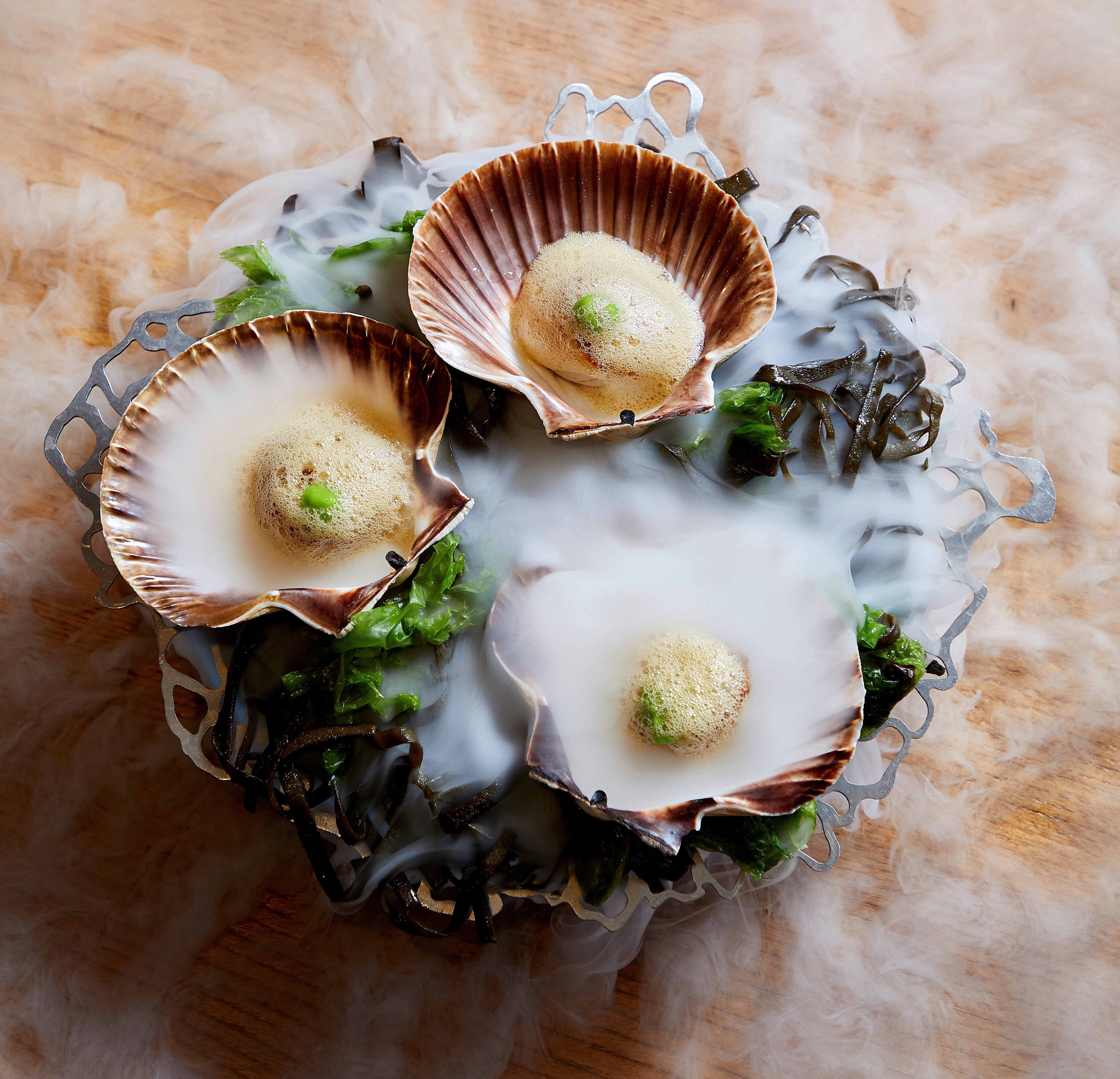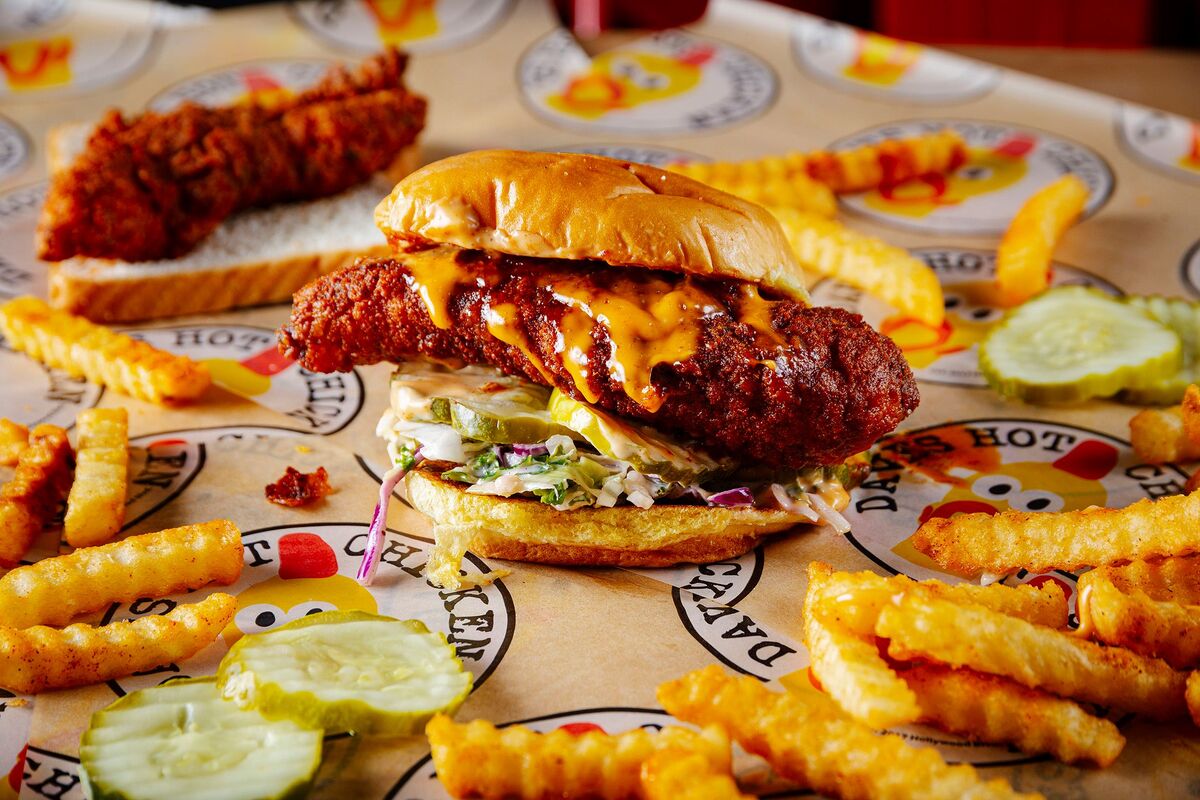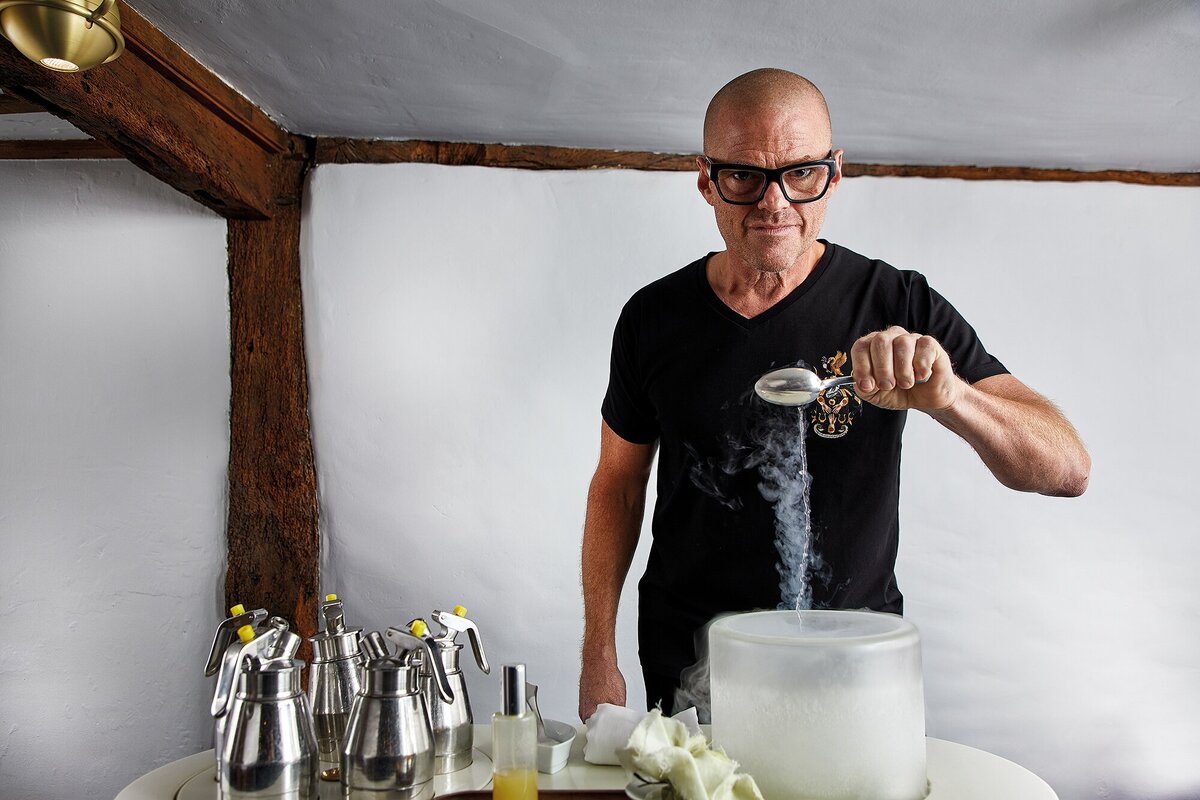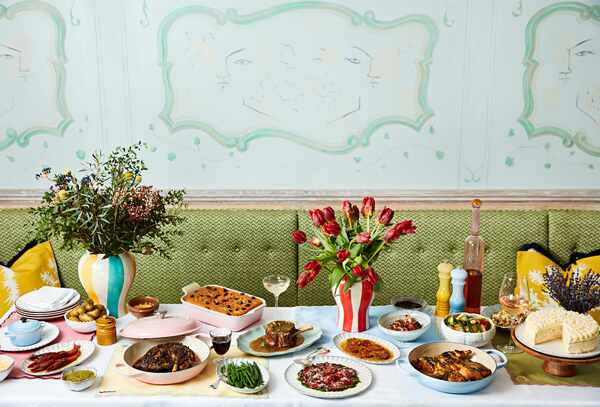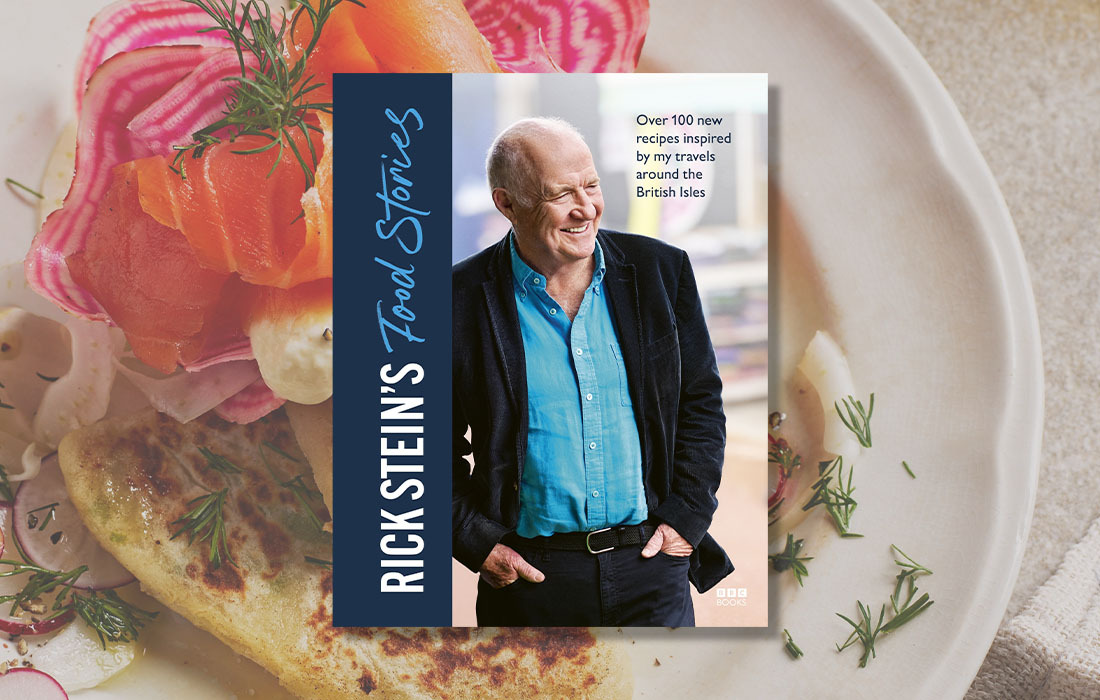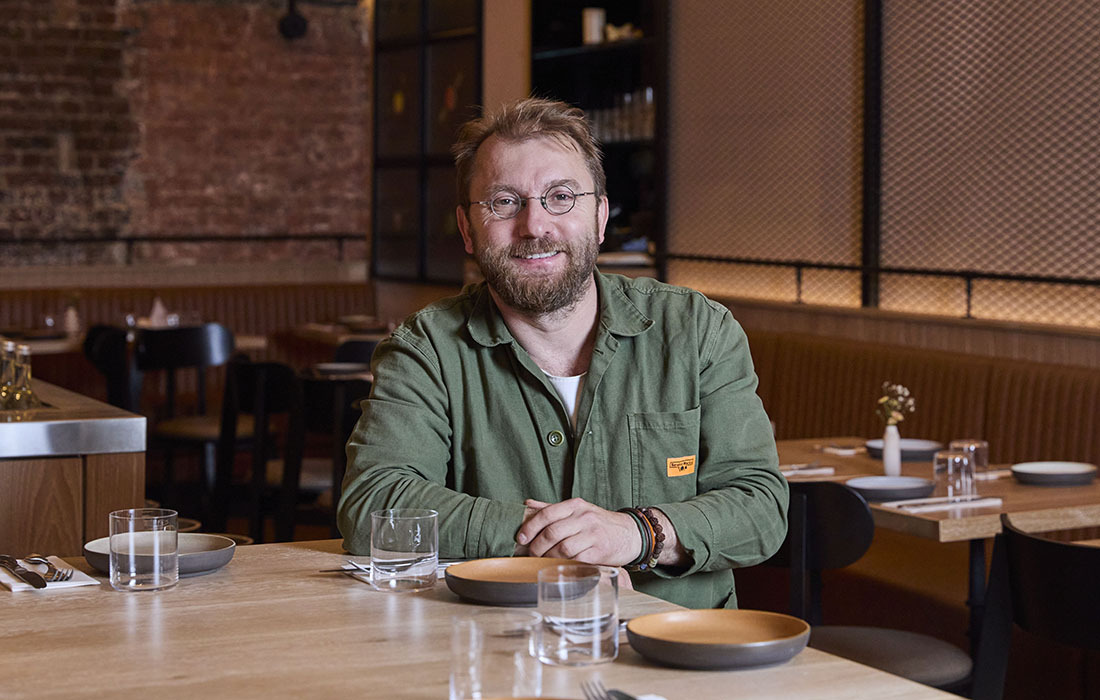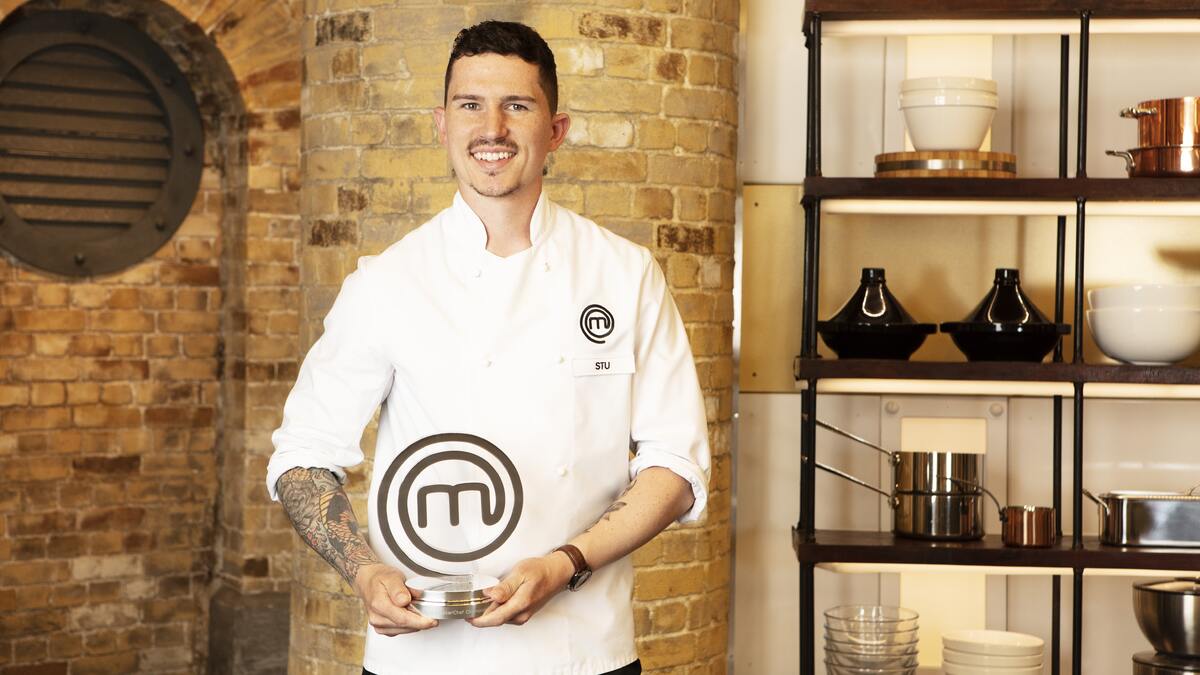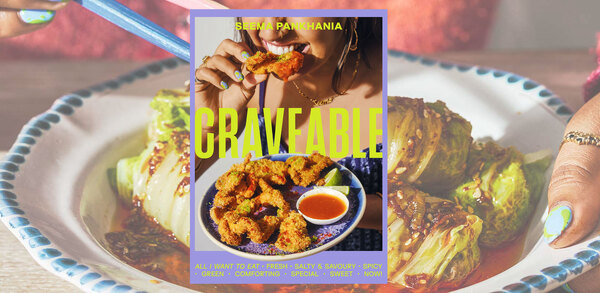Chef masterclass: ‘Bay of Biscay’ scallops by Eneko Atxa
Eneko Atxa is putting his own spin on Basque gastronomy and bringing it all the way to London’s Covent Garden. Michael Raffael reports
Like other chefs with global standing, Eneko Atxa puts his reputation on the line every time a restaurant opens with his name over the door. At Eneko Basque Kitchen & Bar, the odds stack in his favour. The location in Covent Garden’s Theatreland suits the informal Spanish style of sharing plates. He hasn’t set himself up for a fall by pitching either his prices or his culinary ambitions too high. His consultancy arrangement with the newly revamped One Aldwych delivers plenty of incentive with little or no risk. He has a head chef, Javi Blanco, who is as much at home in London as he is in Spain.
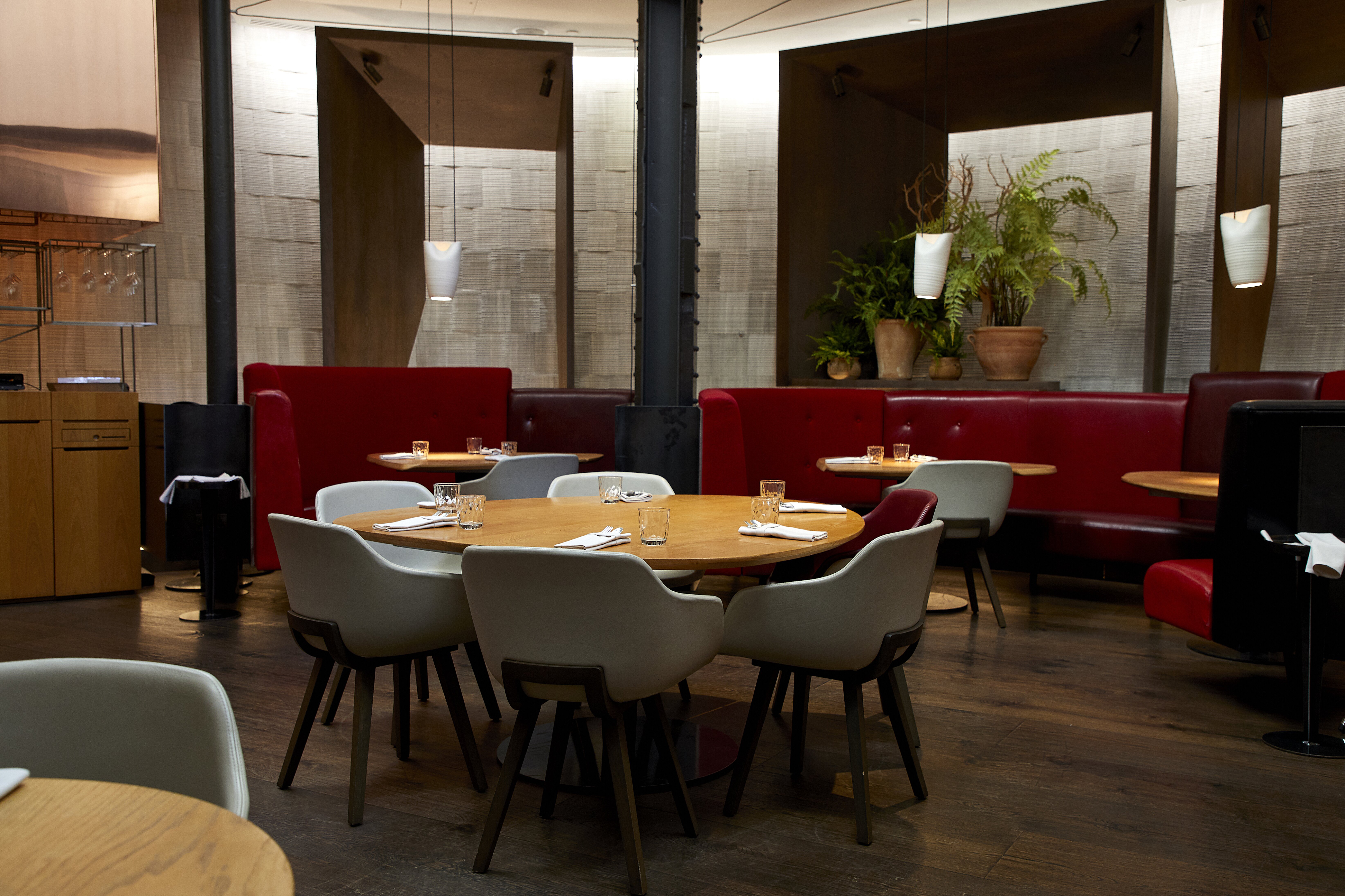
Some dishes on the menu may have originated at his three-Michelin-starred Azurmendi in Larrabetzu, near Bilbao, in Spain. They may benefit from the technical tricks that have emerged from Spain since the heydays of El Bulli. More are purpose-designed for the Basque Kitchen. He devises, plans and sign off every recipe himself.
His ‘Bay of Biscay’ scallop dish pays tribute to his roots by mixing his region’s appetite for seafood, its strong charcoal-smoking tradition and smart gadgetry.
Planning
- Prepare the diver scallops [not shown]
- Make the marinade
- Prepare the chive mayonnaise
- Make the brown butter foam
- Cook the seaweed broth
- Cook the scallops
- Present with dry ice at the table.
Note on batch sizes: one diver scallop per portion; marinade is for 40-plus scallops; chive mayonnaise is for 40-plus portions; brown butter foam is for approximately 30 portions; seaweed broth is for 15 portions; seaweed presentation, 400g seaweed per table of four.
Cost
A sharing plate of four diver scallops costs £35 on the Basque Kitchen menu, with £9 for an extra scallop. Largest scallops cost upwards of £2 each and the total cost per serving meets the kitchen’s 70% GP target.
The scallops
Open the diver scallops in the usual way. Discard the mantles and roes. Retain the smaller shells (sterilised) for service.
For the marinade
- 1 bunch fresh coriander, chopped fine
- 5 untreated lemons, grated zest and juice
- 1 lime, grated zest and juice
- 500ml tsuyu sauce
- 500ml dark soy
- 500ml water
Combine the ingredients.
Chive emulsion
- 1 bunch chives, diced
- 500ml sunflower oil
- Salt
- 3 eggs
Heat the chives, oil and salt to 60°C in a Thermomix. Blend and cool. Put the eggs in a narrow-sided jug. Add the oil and blend with a stick blender to emulsify. Store in a squeezy bottle.
Brown butter foam
The first generation of foams and froths relied on barmix-style blitzing. Here Eneko uses a Foamkit oxygen dispenser. It attaches to a tube with volcanic rock at one end (the equipment was originally designed for aquariums).
- 600g butter
- Small bunch fresh thyme
- 30g soy lecithin powder
Put the cubed butter in a pan and heat until it turns to the classic beurre noisette colour. Add the thyme and infuse it for 30 seconds. Pass the beurre noisette through muslin and dissolve the lecithin in it.
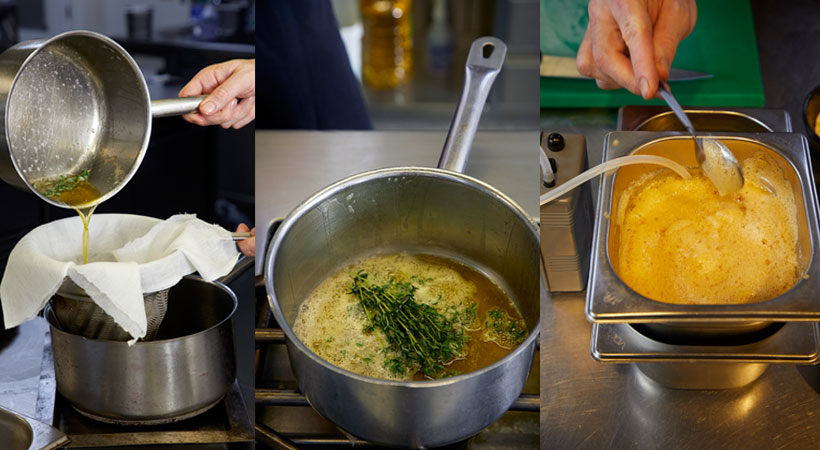
Stand a rectangular, steep-sided metal container in a bain-marie. Feed the tube and volcanic rock into the container. Pour in the melted brown butter. Switch on the oxygen dispenser. Left for a few minutes, it turns the butter to a stable foam.
- Seaweed broth aroma
- 400g fresh edible seaweeds (kelp, dulse, sea lettuce, etc)
- 2 litres water
Simmer the seaweeds in water for an hour and then drain, reserving the water (5). Bay of Biscay (scallop, brown butter, aroma of the sea) The dish can be prepared either in a pan or, as at the Basque Kitchen, in a Josper heated to between 350°C and 400°C.
Sharing dish for 4
- 400g fresh edible seaweed
- 4 diver scallops
- 80g marinade
- 4 scallop shells
- 50g chive emulsion
- 4tbs brown butter foam
- 250ml seaweed broth
- 250g dry ice
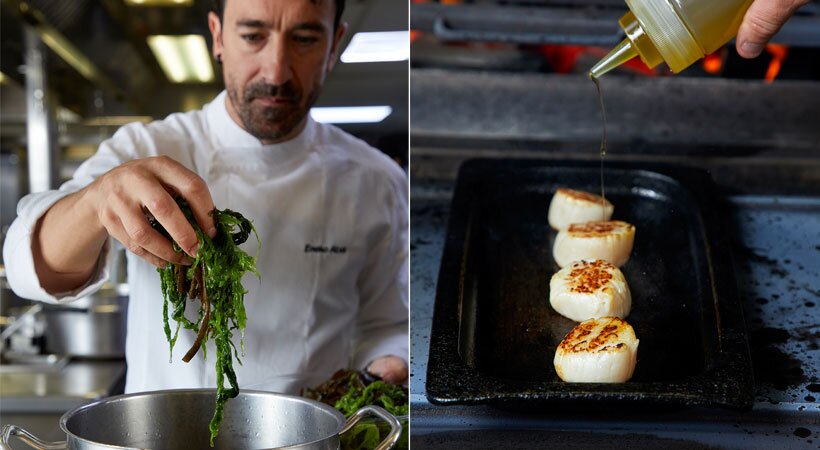
Prepare a platter with edible seaweed as part of the mise en place. Paint the scallops with a little marinade. Put them on a very lightly oiled tray and cook them one minute on each side in the Josper. Squeeze a small dab of chive emulsion into the centre of each scallop shell. Put the scallop on it and another small dab of emulsion on top. Coat with the brown butter foam.
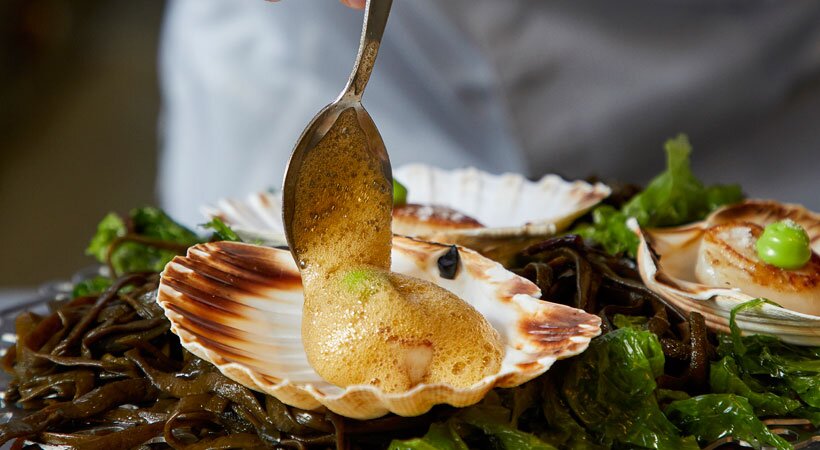
Bury a scoop of dry ice in the seaweed. Lay the scallops on it and go to the customers’ table (10). Pour the seaweed broth over the dry ice from a teapot, so that the mist and aromas rise off the table (11).
###Eneko Atxa
Eneko Atxa wasn’t born when La Nueva Cocina Vasca – New Basque Cuisine – first surfaced. In 40-odd years it has come a long way from its beginnings as an offshoot of nouvelle cuisine. A handful of chefs allied French techniques to a strong regional, culinary identity.
By the time Atxa was a teenager at catering college, Martín Berasategui and Juan Mari Arzak were international stars. The pintxo bars of San Sebastián were busy reinventing the tapas concept. Now, it’s his turn to carry the torch. Together with Arzak’s daughter, Elena, Andoni Luis Aduriz at Mugaritz and Asador Etxebarri’s Victor Arguinzoniz, he has brought fresh impetus to Basque gastronomy. At Azurmendi in the Bilbao hinterland, he has combined the technical virtuosity adopted by a generation of Spanish chefs weaned on a Ferran Adrià diet with a personal crusade to give his restaurant a purpose that transcends serving creative three-Michelin-starred meals.
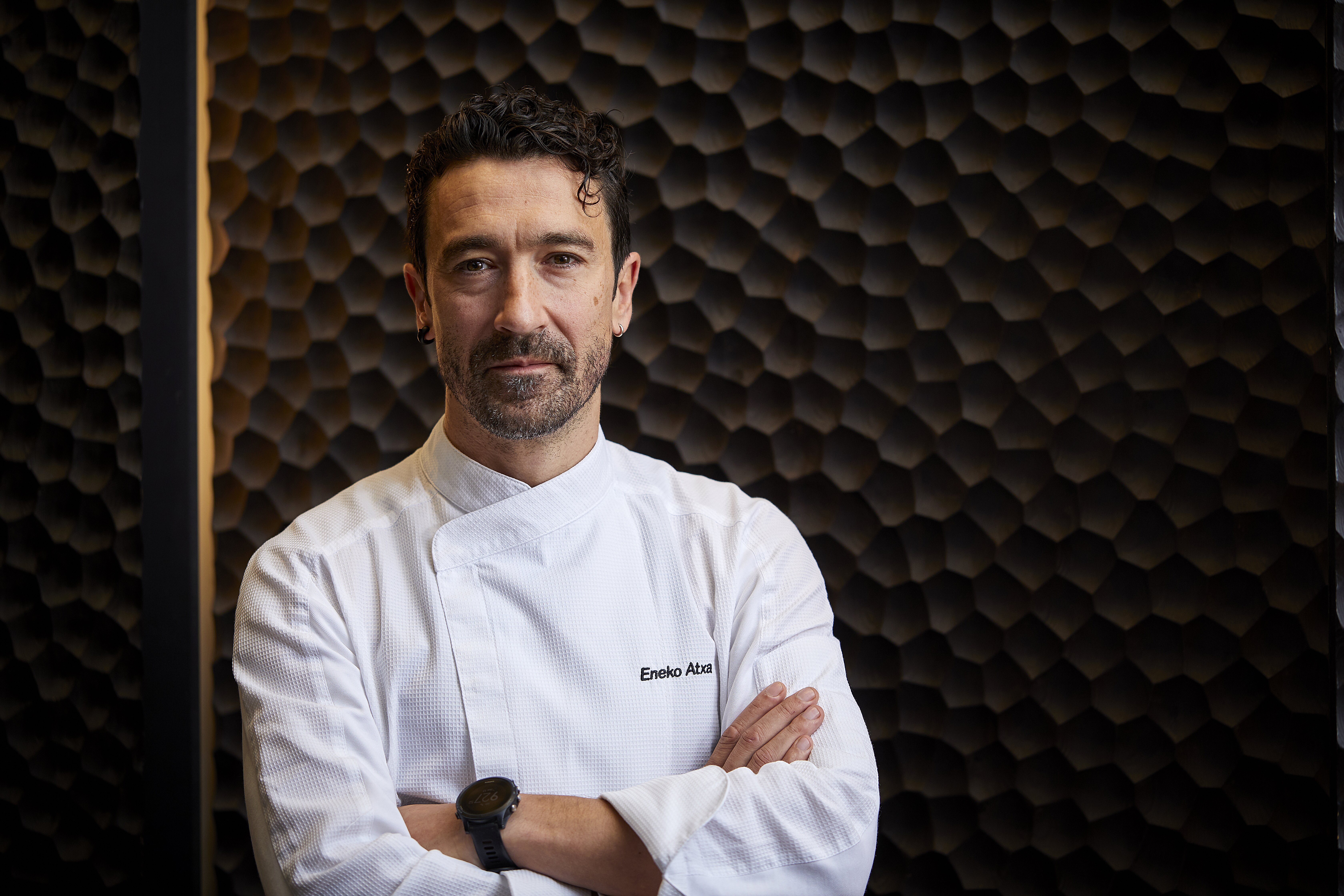
“When I started cooking,” he recalls, “Technique was one of the most important parts of a recipe, but very fast I learned this wasn’t so. Technique is only a tool. Think of the microwave at home. It was revolutionary once. Not any more. It’s the same with Ferran’s techniques. At the start they were incredible. Now they are commonplace.”
He wanted to evoke a different kind of response from his guests visiting Azurmendi, one where the overall experience matched the dishes: “When you come into the lobby, it’s a big garden and we give you a kind of picnic box with different snacks, because we want people to feel free to walk about. Then somebody invites you to visit the kitchen and we explain what we do and there are more beautiful snacks.”
“Next you go to the greenhouse, where there are different small areas. In each one we offer produce in the Basque tradition and from the Basque landscape. Each titbit is a single bite and it happens very fast. Then you go to a dining room that is connected to the countryside and vineyards.”
Gaining a third star in 2012, he says, was the best thing to happen in his professional life. It recognised his talents as a chef but, more importantly, it allowed him to pursue his vision of a restaurant where heritage, farm-to-plate produce and sustainability formed a virtuous circle.
He and his co-owner, winemaker Gorka Izagirre, rebuilt and re-designed the building. “We put in solar panels, we used geothermic heating, we recycled rainwater, we used recyclable construction materials.”
He also worked at both ends of the food chain. On the one hand he created seed banks that have recovered 400 Basque plant varieties. These were studied and the information passed on to farmers (his signature corn talo, a crisp tortilla with a basil emulsion, is built around regional tomato varieties resulting from the research). At the other extreme the restaurant composts all its organic waste.
He also changed his staff meal regime: “We are chefs; we are waiters. We don’t eat healthily every day, so I’ve created menus for them that are balanced and healthy.”
Inside the restaurant he has learned how to cater for guests with intolerances or allergies. Outside it he has collaborated with nutritionists and dieticians to create menus for the general public, whether in pregnancy or suffering from conditions such as diabetes. Shades of Jamie Oliver, Atxa has worked toward improving hospital food without increasing its cost price.
“If you can improve society,” he argued, “if you can change the world a bit, not much, then why not? You can use food to build a better future and improve lives. Arzak and Adrià inspired us, but what are we doing to inspire the next generation?”
His name is above the door of restaurants in Tokyo, Lisbon and Bilbao. London’s Basque Kitchen at One Aldwych reflects this broad-minded thinking. He based the opening menus on dishes from Azurmendi, but has since adapted to the sharing concept that suits the Covent Garden location.
According to his chef, Javi Blanco: “Everything has been designed by Eneko; all the recipes, all the sauces are his. We make dishes that are technically complicated, but which are simple on the plate.”
The smokiness that characterises many dishes – duck breast, scallops, rack of lamb – is typically Basque. Instead of an open charcoal barbecue, though, their flavour comes from a Josper. Given that the kitchen can turn over 100-plus covers during service, it combines consistency with speed.
All Eneko’s satellites feature Gorka Izagirre wines. Txacoli, drunk in bars across the Basque Country, are typically light, spritzy, sometimes salty. His, made from Hondarribi Zerratia grapes, have more finesse. They regularly feature among the world’s top 5% NV wines. Azurmendi’s barrel-fermented house wine, 42 by Eneko Atxa, was a 2015 winner of the Great Gold Medal at the Concours Mondial de Bruxelles.
The wine and food pairing, like the partnership between winemaker and chef, give his Basque Kitchen a powerful identity. Whether he expands his growing international business or he pursues his vision of improving society through food isn’t, he says, an ‘either’ ‘or’ question. He was in a position to do both: “Sometimes I torment my mind thinking of the future. Time has taught me that the happiness you feel when you reach the top of the mountain is for one second, but that real enjoyment comes from climbing the mountain. And that’s what I’m trying to do with my life, living day by day and not thinking too much about tomorrow.”



